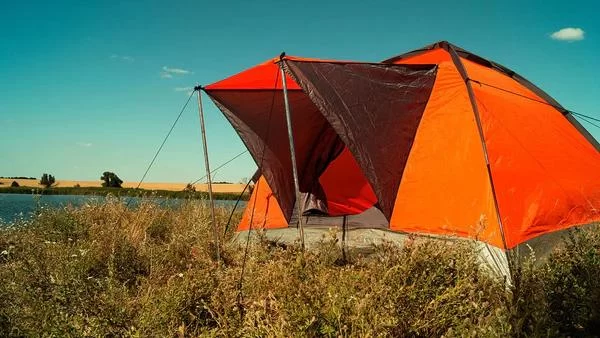Learn how to plan a long-term camping trip in the US with expert tips. Explore the best camping destinations, essential planning steps, and insider advice for a successful outdoor adventure.

How to Plan a Long-Term Camping Trip in the US
- Choosing the Right Destination for a Long-Term Camping Trip
- Essential Gear for Extended Camping Adventures
- Budgeting and Preparing for a Long-Term Camping Trip
- Planning Your Campground Stays and Itinerary
Choosing the Right Destination for a Long-Term Camping Trip
The first step in planning a long-term camping trip in the US is selecting the perfect destination. The US offers a diverse range of camping locations, from the majestic national parks of the West to the serene forests of the East. When choosing your destination, consider the following factors:
- Climate: Think about the weather conditions during the time of year you plan to camp. If you're heading to the Southwest, expect hot, dry conditions in summer, while the Pacific Northwest offers cooler, more temperate climates.
- Access to Activities: Look for locations that offer the outdoor activities you enjoy, such as hiking, fishing, or kayaking. The Great Smoky Mountains, for instance, are perfect for hiking, while the lakes in Colorado offer excellent fishing opportunities.
- Safety and Facilities: Consider how remote the location is and whether it provides adequate facilities like fresh water, restrooms, and cell service. For beginners, starting with more accessible sites like those in Yosemite or Yellowstone is recommended.
Popular long-term camping destinations in the US include Yellowstone National Park, the Adirondacks in New York, and the Grand Canyon. Each offers unique landscapes and experiences that make for memorable long-term camping trips.
Essential Gear for Extended Camping Adventures
When planning a long-term camping trip, packing the right gear is crucial for a successful adventure. Below are essential items to ensure your comfort and safety throughout your trip:
- Durable Tent: A high-quality, weather-resistant tent is a must. Consider investing in a four-season tent that can withstand harsh conditions if you're camping in colder or mountainous areas.
- Sleeping Bag and Pad: Opt for a sleeping bag suited to the climate. A sleeping pad will provide insulation and comfort during chilly nights under the stars.
- Cooking Equipment: Portable stoves, cookware, and utensils are essential for preparing meals in the great outdoors. If you're camping for an extended period, consider a solar-powered cooking setup.
- Navigation Tools: A good map, compass, and GPS are indispensable for exploring remote areas safely. Also, download offline maps in case you lose signal.
- First Aid Kit: Always have a comprehensive first aid kit with bandages, antiseptics, and medications to handle minor injuries or illnesses.
Investing in reliable, high-quality gear will make your long-term camping experience more enjoyable and safe.
Budgeting and Preparing for a Long-Term Camping Trip
One of the most important steps in planning a long-term camping trip in the US is managing your budget. The cost of a long-term camping trip can vary depending on your destination, gear, and the duration of your stay. Here are some budgeting tips:
- Campsite Fees: Many campgrounds charge fees for overnight stays. Research the parks or campsites you want to visit and plan for entry fees, as well as any additional amenities or services you might need.
- Food and Supplies: Stock up on non-perishable food items for your trip, such as canned goods, dried fruits, and energy bars. Plan your meals ahead of time to ensure you have enough food for the duration of your camping trip.
- Transportation: Factor in transportation costs, including fuel or vehicle rentals if necessary. If you're traveling across the country, consider renting an RV for added convenience.
Setting aside a realistic budget and preparing in advance will help you avoid surprises during your trip and ensure you have the resources to enjoy your adventure without stress.
Planning Your Campground Stays and Itinerary
Once you've chosen your destination and gathered your gear, it's time to create a camping itinerary. Long-term camping trips require a bit more flexibility and foresight compared to short-term outings. Here’s how to plan:
- Reserve Campsites: Popular campsites, especially in national parks, often require reservations months in advance. Be sure to book your sites ahead of time, particularly if you're traveling during peak seasons.
- Mix Remote and Developed Sites: While it’s great to camp in remote locations, be sure to also plan for some time in more developed campgrounds where you can restock supplies, do laundry, and take care of any necessary maintenance on your gear.
- Be Flexible: One of the joys of long-term camping is the freedom to explore at your own pace. While it’s important to have a general plan, allow for spontaneity and changes in your itinerary as you discover new places along the way.
By planning ahead and staying flexible, you’ll create an unforgettable long-term camping adventure filled with diverse experiences and breathtaking landscapes.
Turkey Foot Campground
Forest Service Road 345, McKee, KY 40447, USA
Visit Location PageGilmore Campground
Gilmore Campground, Idaho 83801, USA
Visit Location Page